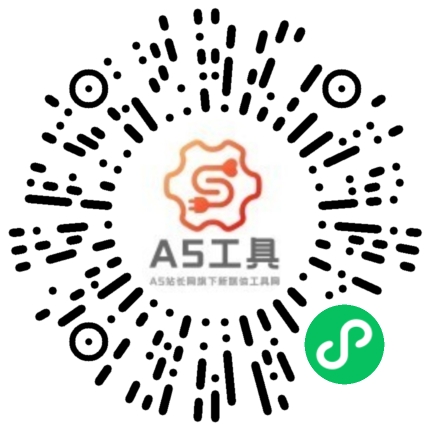无需文本解读,声音克隆技术引领音频新纪元:一场声音的奇幻之旅
2025-04-10 15:46
**How to Clone a Voice Without Reading the Text: An Intriguing Audio Adventure**
In a world where technology is advancing at an unprecedented pace, the boundaries of what seems possible are constantly being redefined. Imagine being able to clone a voice—capturing its essence, tone, and nuances—without ever needing to read the words it utters. Sounds like science fiction, doesn't it? But what if I told you that this technological marvel is closer to reality than you might think?
Have you ever wondered how voice cloning works, and whether it's possible to achieve this without analyzing written text? Traditional methods often rely heavily on textual data to train algorithms, but recent advancements are pushing the boundaries of what's achievable without such reliance. Let's dive into this fascinating topic and explore how voice cloning can transcend the need for written language.
First, consider the power of machine learning and artificial intelligence (AI). Recent research has shown remarkable progress in the field of voice synthesis, particularly with the advent of deep learning models. According to a study by a leading AI research institute, these models can now generate highly realistic synthetic speech that's indistinguishable from human speech in many cases. The key lies in the analysis of voice patterns, pitch, and rhythm, rather than the specific words being spoken.
But how does one capture these intricate details without textual input? The answer lies in advanced audio analysis techniques. By isolating and studying the unique characteristics of a person's voice, AI algorithms can create a digital fingerprint that can be used to generate new speech. This process is akin to how a musician might mimic the style of another by listening intently to their performances, rather than reading sheet music.
Imagine the implications for the entertainment industry. Voice actors could be replaced by AI-generated clones that maintain the integrity of the original voice, without the need for extensive recording sessions. Video game developers could create immersive experiences where characters' dialogues adapt dynamically based on player interactions, all without the constraint of pre-recorded lines.
Moreover, the potential for personalization is staggering. Think of personalized voice assistants that sound exactly like you, or secure authentication systems that verify your identity based on the unique nuances of your voice. These applications are not just theoretical; they are actively being developed and tested by leading tech companies around the globe.
As we stand on the cusp of this audio revolution, it's crucial to consider the ethical implications. With the ability to clone voices, we must ensure that this technology is used responsibly and with respect for individual privacy. But let's not let such considerations dampen our enthusiasm for the incredible possibilities that lie ahead.
So, the next time you hear a voice that sounds eerily familiar, don't be too quick to dismiss it as mere coincidence. It might just be the dawn of a new era in voice cloning technology, one that doesn't require a single word to be read. Welcome to the future of audio, where the sound of your voice is your most powerful identifier—cloned and ready for action.
In a world where technology is advancing at an unprecedented pace, the boundaries of what seems possible are constantly being redefined. Imagine being able to clone a voice—capturing its essence, tone, and nuances—without ever needing to read the words it utters. Sounds like science fiction, doesn't it? But what if I told you that this technological marvel is closer to reality than you might think?
Have you ever wondered how voice cloning works, and whether it's possible to achieve this without analyzing written text? Traditional methods often rely heavily on textual data to train algorithms, but recent advancements are pushing the boundaries of what's achievable without such reliance. Let's dive into this fascinating topic and explore how voice cloning can transcend the need for written language.
First, consider the power of machine learning and artificial intelligence (AI). Recent research has shown remarkable progress in the field of voice synthesis, particularly with the advent of deep learning models. According to a study by a leading AI research institute, these models can now generate highly realistic synthetic speech that's indistinguishable from human speech in many cases. The key lies in the analysis of voice patterns, pitch, and rhythm, rather than the specific words being spoken.
But how does one capture these intricate details without textual input? The answer lies in advanced audio analysis techniques. By isolating and studying the unique characteristics of a person's voice, AI algorithms can create a digital fingerprint that can be used to generate new speech. This process is akin to how a musician might mimic the style of another by listening intently to their performances, rather than reading sheet music.
Imagine the implications for the entertainment industry. Voice actors could be replaced by AI-generated clones that maintain the integrity of the original voice, without the need for extensive recording sessions. Video game developers could create immersive experiences where characters' dialogues adapt dynamically based on player interactions, all without the constraint of pre-recorded lines.
Moreover, the potential for personalization is staggering. Think of personalized voice assistants that sound exactly like you, or secure authentication systems that verify your identity based on the unique nuances of your voice. These applications are not just theoretical; they are actively being developed and tested by leading tech companies around the globe.
As we stand on the cusp of this audio revolution, it's crucial to consider the ethical implications. With the ability to clone voices, we must ensure that this technology is used responsibly and with respect for individual privacy. But let's not let such considerations dampen our enthusiasm for the incredible possibilities that lie ahead.
So, the next time you hear a voice that sounds eerily familiar, don't be too quick to dismiss it as mere coincidence. It might just be the dawn of a new era in voice cloning technology, one that doesn't require a single word to be read. Welcome to the future of audio, where the sound of your voice is your most powerful identifier—cloned and ready for action.
这篇关于《无需文本解读,声音克隆技术引领音频新纪元:一场声音的奇幻之旅》的文章就介绍到这了,更多新媒体运营相关内容请浏览A5工具以前的文章或继续浏览下面的相关文章,望大家以后多多支持A5工具 - 全媒体工具网!
相关资讯
查看更多
语音克隆:声音革命来袭,你准备好拥抱无限可能与挑战了吗?
**语音克隆:解锁声音的无限可能,你准备好了吗?**
在这个科技日新月异的时代,我们似乎总能见证一个又一个不可思议的奇迹。今天,当我们谈论“语音克隆”,你是否会想象到电影《星际穿越》中,库珀通过高科...

声音克隆技术:科技奇迹还是隐私噩梦?双刃剑下的未来探索
**声音克隆技术:双刃剑下的奇妙与隐忧**
在这个日新月异的科技时代,声音克隆技术如同一颗璀璨的新星,照亮了人工智能领域的一角。你是否曾幻想过,让已故亲人的声音再次在耳边响起?或者,让名人的声音为你...

百度AI声音克隆免费版:一键克隆你的声音,开启语音个性新纪元!
**百度AI声音克隆免费版下载:开启个性化语音新时代**
在这个数字化飞速发展的时代,科技的每一次进步都在深刻地改变着我们的生活。今天,我要向大家介绍一项令人兴奋的新技术——百度AI声音克隆免费版。...

剪映电脑版:声音克隆技术,让视频创作声音随心所欲无界限
**电脑版剪映:声音克隆技术,让创意无界限**
在数字创作的浩瀚宇宙中,每一项新技术的诞生都如同璀璨星辰,引领着我们探索未知的创意领域。今天,我们要探讨的正是这样一项令人瞩目的技术——电脑版剪映的声...

声音克隆技术:未来已来,你的声音能否安全迎接这场革命?
**声音克隆软件:未来已至,你的声音能否被完美复制?**
在这个日新月异的数字时代,技术的每一次飞跃都在刷新我们对“可能”的认知边界。你是否曾幻想过,有一天,只需轻点几下屏幕,就能拥有一个与你声音别...

剪映克隆声安卓缺席?解锁创意新径,安卓创作者声音不设限!
**剪映克隆声音安卓缺失?探索创意解决方案,让声音创作不设限!**
在数字创意的浪潮中,视频编辑软件如同魔法棒,让每个人都能成为自己故事的导演。剪映,作为一款备受欢迎的视频编辑应用,以其强大的功能和...

声影克隆家:免费克隆人声与口型,让你的虚拟形象开口说话!
**克隆人声与口型,免费软件引领新潮流**
在这个日新月异的数字时代,你是否曾幻想过拥有与偶像一模一样的声音,或是让你的虚拟形象在视频中流畅地说出你心中的话语?如今,这一梦想正通过一款名为“声影克隆...

AI声音克隆新纪元:探索GitHub热门软件的显卡配置底线
### 探索GitHub上克隆声音软件的显卡底线:你准备好迎接声音复制的新纪元了吗?
在科技的浪潮中,AI声音克隆技术正以惊人的速度重塑我们的视听世界。想象一下,只需几秒的音频样本,就能克隆出任何人...





